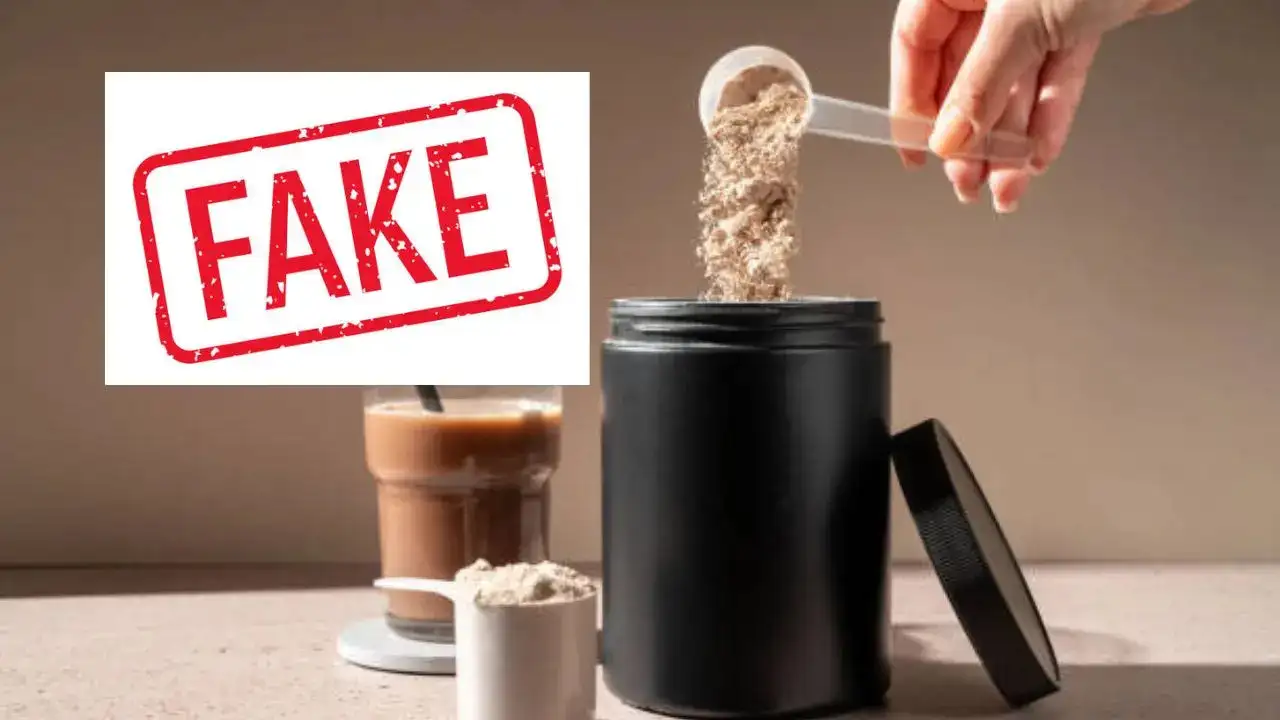
Always go for high-quality packets or boxes which do not have any grammatical or spelling errors along with poor printing
Protein powders are nutritional supplements that help build muscle, repair tissue, and make enzymes and hormones. According to experts, using protein powders regularly also helps aid weight loss and tone muscles. However, the markets today are filled with the fake ones, which can be extremely dangerous for your health.
According to nutritionists, there are a few easy and practical tips on how to spot fake protein powders and ensure you are consuming a legitimate product.
Packaging quality
Experts stress the need to first and foremost check the type and kind of packaging done on these powders. Always go for high-quality packets or boxes that do not have any grammatical or spelling errors along with poor printing. Doctors say authentic protein powders will always have professional, well-printed packaging – and the ones that look subpar or contain mistakes could be fake.
A genuine whey protein powder will have a high protein content per serving – typically 20-30 grams – with low amounts of fat, carbs, and sugar. If the numbers seem off, it’s a red flag.
Mixing test
Doctors say if the protein powder is genuine, it will mix well in liquids without leaving lumps or sediment. However, if it does not dissolve properly in water or milk and leaves an unusual texture, it could definitely be fake.
Taste test
Authentic whey protein powder is always tested for heavy metals like lead, arsenic, and mercury. However, the fake ones always skip this step, posing serious health risks.
A fake protein powder will always have an overly artificial taste and strange smell.
Know the types and sources
Always look for terms like 'whey protein isolate' or 'whey protein concentrate' on the label. Isolates are purer, with higher protein content and fewer carbs and fats. Concentrates are also high-quality but contain slightly more lactose and fat.
Make sure to always avoid products that simply say “whey protein” without specifying the type. If the label doesn’t mention the source or origin of the whey, it’s likely a low-quality or fake product.
Why should you take protein powder?
Promotes muscle growth
Protein is one of the most important macronutrients that help maintain and prevent muscle loss – especially as you get older. It supports the growth and recovery of cells necessary for muscle energy, tissue growth, and restoration. It is also rich in all nine essential amino acids that your body needs.
Lowers blood pressure
High blood pressure is one of the leading risk factors for cardiovascular diseases across the world. Studies say whey protein supplementation reduces systolic blood pressure, keeping your heart healthy.
Helps manage diabetes
Taking protein powder helps manage diabetes – a chronic disease characterised by high blood sugar and impaired insulin function. Whey protein supplementation manages diabetes in several ways, including lowering blood sugar levels after eating and increasing insulin levels and sensitivity to its effects.
Reduces inflammation
While inflammation is a part of your body’s response to damage, chronic inflammation can be dangerous, leading to heart diseases and arthritis. And so, taking protein powder supplementation reduces C-reactive protein, or CRP, and interleukin-6, or IL-6 – two key markers of inflammation in the body.
